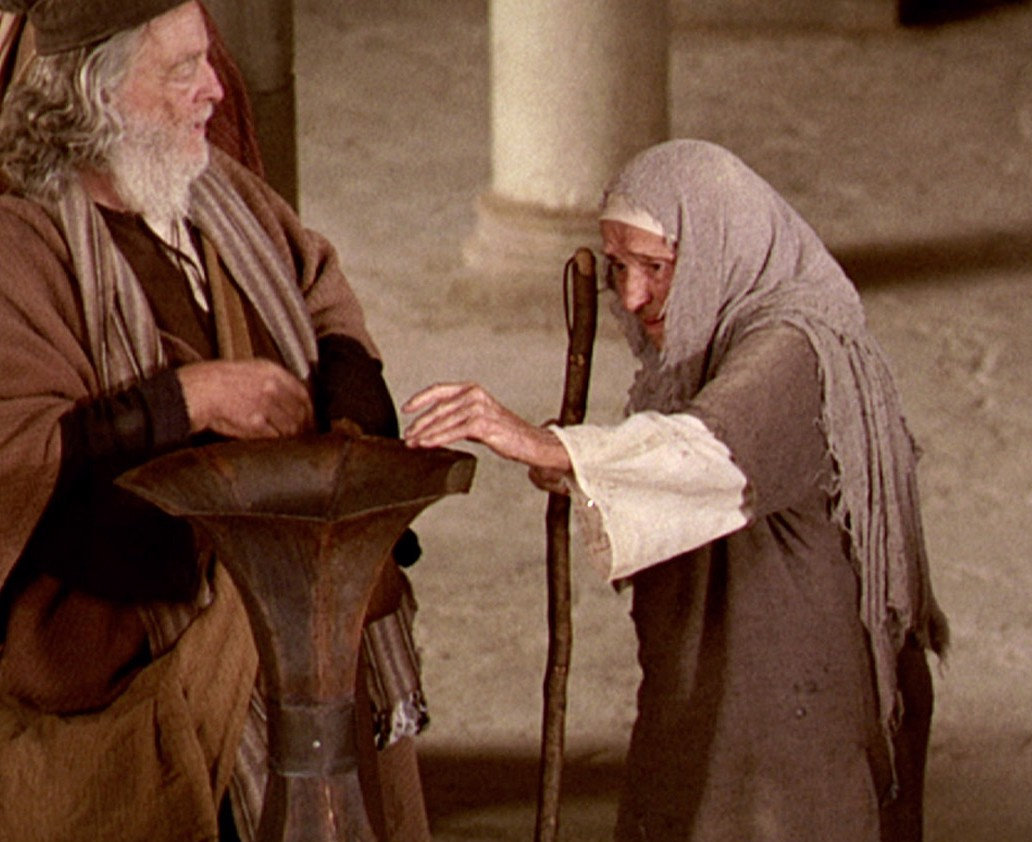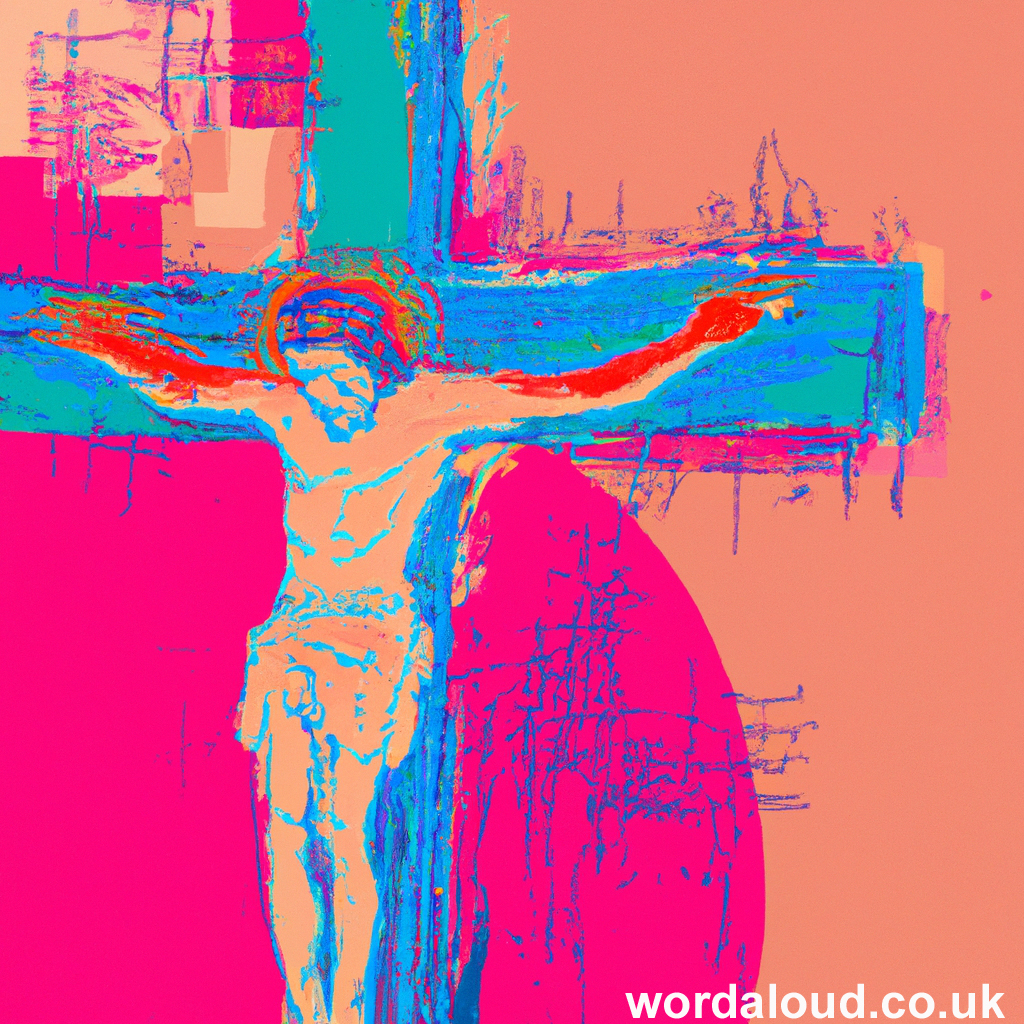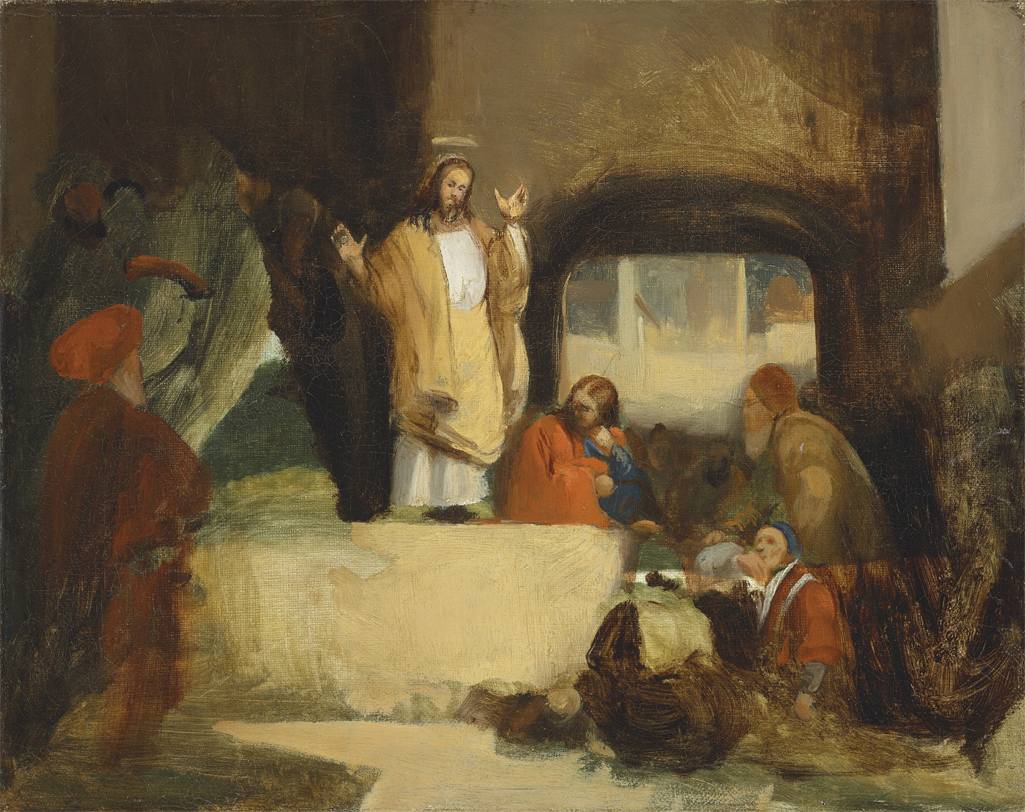Christian Art | I Am Come To Send Fire On The Earth | King James Audio Bible KJV
Luke 12: 49-53 – Week 29 Ordinary Time, Thursday; Also Week 20 Sunday Year C (King James Audio Bible KJV, Spoken Word)
49 ¶ I am come to send fire on the earth; and what will I, if it be already kindled?
50 But I have a baptism to be baptized with; and how am I straitened till it be accomplished!
51 Suppose ye that I am come to give peace on earth? I tell you, Nay; but rather division:
52 For from henceforth there shall be five in one house divided, three against two, and two against three.
53 The father shall be divided against the son, and the son against the father; the mother against the daughter, and the daughter against the mother; the mother in law against her daughter in law, and the daughter in law against her mother in law.
Christ the King of Peace – and yet in these verses Jesus tells us, confusingly, that he has come to bring not peace on earth but conflict. These are challenging verses. They demand we ask, what can this mean?
The symbolism of fire encompasses a range of meanings. Fire is used in the Bible to signify God’s love for humanity. It is also a response of man to God: ‘My heart was hot within me, while I was musing the fire burned: then spake I with my tongue.’ (Psalm 39: 3) It is also the fire of Pentecost, when the tongues of fire descended to the apostles and they received their commission to preach the Gospel and establish the Church of Jesus Christ. Christ’s death on the cross must precede this commissioning.
Jesus speaks of his death as a baptism. Our baptism flows from the cross: we are submersed in Christ’s death, through which we may die to sin to be reborn in the new life of grace, to call God our Father. Through our urgent response to Christ and his teaching, this becomes for our souls a baptism of fire.
And yet now there is predicted discord, division, families divided, father against son, in seeming violation of the Decalogue. Jesus may not want this to happen but he knows it will happen, that he is a ‘sign of contradiction’ – that at the heart of his message, where we are to know Jesus Christ as the Son of God, reshaping the Law with an authority equal to that of the Father, there will inevitably be conflict between the newly Christian and those close to them who cannot relinquish their old beliefs.
In the immediate future, it is division, discord, and contradiction which will lead Christ to the cross, thereby to redeem us. Christ takes our divisions upon himself, and we are healed.
Concluding Prayer | Love Revealed By Jesus Christ
Almighty God, you are all light. In you there is no darkness.
Let your light shine upon us in all its radiance, so that we may walk gladly in the way of your commandments.
Through Christ our Lord.
![]()

King James Audio Bible | Endnotes
I Am Come To Send Fire On The Earth
Jesus’ words are striking, especially because they contrast with the conventional image of Jesus as a figure of peace and love. So what does this passage mean? To begin, we need to understand that ‘fire’ is a powerful image in the Bible that symbolizes purification, testing, and judgement. For example, in Malachi 3:2, the prophet speaks of the coming of the Lord as a refiner’s fire: ‘But who may abide the day of his coming? and who shall stand when he appeareth? for he is like a refiner’s fire, and like fullers’ soap.’ In 1 Corinthians 3:13, Saint Paul speaks of the Day of the Lord as a time when ‘the fire shall try every man’s work of what sort it is’.
In this context, Jesus’ statement that he comes to send fire on the earth can be understood as a reference to the judgement that will come upon humanity. This is not a pleasant prospect, but it is a necessary one. In order for God’s kingdom to be established on earth, sin and evil must be purged from the world. This will be a painful and difficult process, but it is one that must take place.
Furthermore, Jesus’ statement that he has a baptism to be baptized with is a reference to his own suffering and death. This is the ultimate test and purification, the baptism of blood that Jesus will undergo on the cross. Jesus’ suffering and death will bring about the salvation of humanity, but it will also be a source of division and conflict. Some will accept Jesus and his message, while others will reject it.
This brings us to the next part of the passage, where Jesus speaks of the division that his message will bring about. It is important to note that this division is not something that Jesus desires or intends. Rather, it is a natural consequence of his message. The Gospel challenges people to turn away from sin and embrace a new way of life, one that is rooted in love and service to others. This is not an easy message to accept, and it will inevitably lead to conflict and division.
An interpretation is that the division that Jesus speaks of is not a violent or aggressive one. The Gospel message is one of peace and love, and it is meant to bring people together in a spirit of unity and reconciliation. As Saint Paul writes in Ephesians 2:14: ‘For he is our peace, who hath made both one, and hath broken down the middle wall of partition between us.’
Saint Augustine saw the fire that Jesus speaks of as a symbol of the Holy Spirit, who comes to purify and sanctify the world. In his commentary on Luke, Saint Augustine writes: ‘This fire is nothing else than the Holy Spirit, who came down upon the apostles on the day of Pentecost…This is the fire that Christ desires to spread throughout the world, to ignite the hearts of believers and to purify the earth from all that is impure and sinful.’
I Am Come To Send Fire On The Earth | Old Testament
Several passages of the Old Testament shed light on the meaning of Jesus’ words in Luke 12:49-53. One such passage is found in the book of Malachi, where the prophet writes: ‘But who may abide the day of his coming? And who shall stand when he appeareth? For he is like a refiner’s fire, and like fullers’ soap: And he shall sit as a refiner and purifier of silver: and he shall purify the sons of Levi, and purge them as gold and silver, that they may offer unto the LORD an offering in righteousness.’ (Malachi 3:2-3, KJV)
Here, Malachi is speaking of the coming of the Lord, who will purify his people like a refiner’s fire. The image of a refiner’s fire is one that is often used in the Bible to describe the process of refining and purifying metal. The metal is heated in a furnace until it becomes molten, and the impurities rise to the surface and are skimmed off. The result is a pure, refined metal that is stronger and more valuable than it was before.
In the same way, Jesus’ message is like a refiner’s fire that purifies and refines his followers. As they confront their own sinfulness and work for the transformation of the world, they are refined and purified, becoming stronger and more valuable in the eyes of God.
A second passage that sheds light on Jesus’ words is found in the book of Ezekiel, where the prophet writes: ‘And I will bring the third part through the fire, and will refine them as silver is refined, and will try them as gold is tried: they shall call on my name, and I will hear them: I will say, It is my people: and they shall say, The LORD is my God.’ (Ezekiel 13:9, KJV)
Here, Ezekiel is speaking of the remnant of Israel that will be saved in the end times. They will be refined and purified like silver and gold, and will call on the name of the Lord. This image of refinement and purification is similar to that used by Malachi, and underscores the idea that the fire that Jesus brings is one that purifies and refines his followers.
Taken together, these passages of the Old Testament help to illuminate the meaning of Jesus’ words in Luke 12:49-53. They underscore the idea that the fire that Jesus brings is a purifying fire, one that refines and strengthens his followers and helps to build the kingdom of God on Earth.
I Am Come To Send Fire On The Earth | Pope Francis
Pope Francis has spoken about the fire that Jesus brings to the Earth. In a homily delivered on the Feast of Pentecost in 2013, Pope Francis said: ‘The fire of the Holy Spirit transforms us from within, it purifies us. It burns away our sins, our egoism, our indifference, and rekindles in us the warmth of Christ’s love.’
Here, Pope Francis emphasizes the transformative power of the Holy Spirit, which burns away our sin and selfishness and rekindles in us the love of Christ. This echoes the idea of purification and refinement that we see in the Old Testament passages discussed earlier.
Pope Francis has also spoken about the need for Christians to be courageous in spreading the Gospel message, even in the face of opposition. In a homily delivered in 2013, Pope Francis said: ‘The Gospel is not for cowards. It takes courage to preach the Gospel, to proclaim the name of Jesus Christ.’
This idea of courage in the face of opposition is reminiscent of Jesus’ words in Luke 12:49-53, where Jesus speaks of the conflict and division that his message will bring. Pope Francis encourages Christians to be bold in their proclamation of the Gospel message, even if it means facing opposition or persecution.








